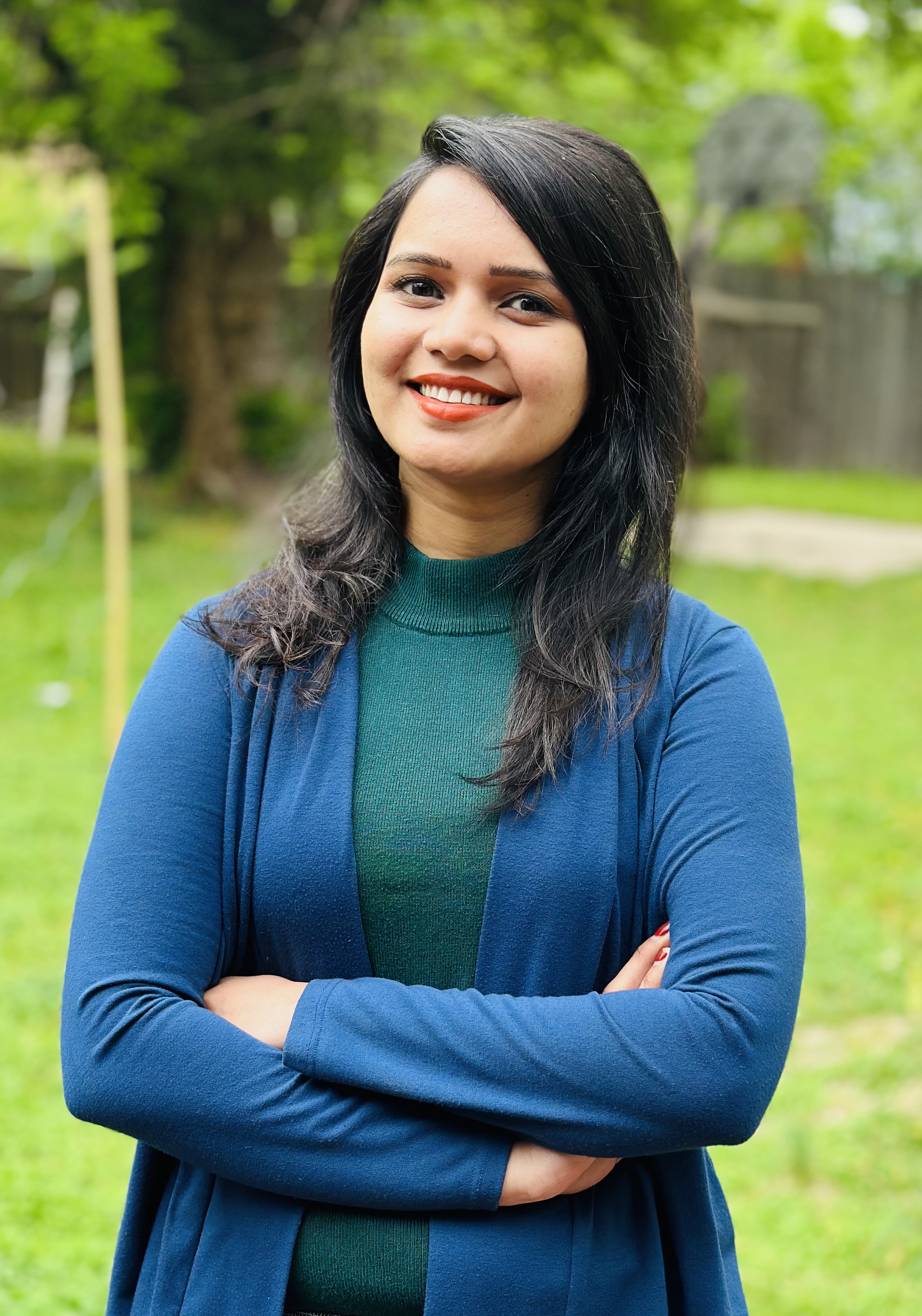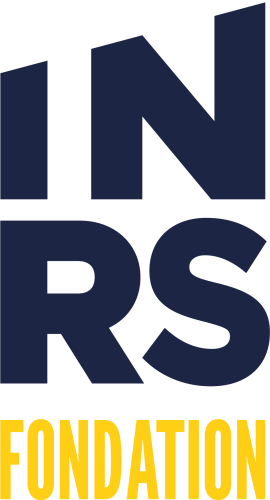
This award is an incredible honour and a validation of the hard work, dedication and passion I have put into my research over the years. It is a recognition of the impact and contribution of my research to my field and gives me a huge sense of achievement and pride.
Shruti Rajendra Kshirsagar
Ph.D. Telecommunications, 2022
Centre Énergie Matériaux Télécommunications
Surpervisor: Tiago H. Falk
From her PhD research, Shruti has already published five journal articles and two conference papers, as well as two reports for the “Detection and Classification of Acoustic Scenes and Events” challenge. The tools she developed in her highly rated PhD disseration address the real limitations of using emotion recognition devices. She has contributed to various projects in the field of mental stress detection that are at the forefront of emotion recognition challenges, including the “A-V-E-C” [automatic analysis of health and emotions in audiovisuals] and “Emoti-W” [prediction of engagement in real-life conditions] challenges.
What brought you to INRS?
I was attracted to INRS for several reasons. Firstly, INRS has an excellent reputation as a research-intensive institution that promotes innovation and excellence in higher education. I was particularly impressed by the cutting-edge research in my field of study and knew that I wanted to be part of this dynamic academic environment.
I discovered INRS through the research topic of Professor Tiago H. Falk. During my research internship at Nanyang Technological University, Singapore, I came across an exciting paper by Professor Falk, entitled “Automatic speech emotion recognition using modulation spectral features,” in which he proposed a new feature, namely the modulation spectral feature (which outperformed the MFCC and PLP features). When I read the article, I realised that my interests were directly related to those of Professor Falk. He is an expert in the field of speech and in many multidisciplinary areas related to signal processing. I was convinced that pursuing a PhD under his supervision would be a unique opportunity for me. In addition, the Multimedia and Multimodal Signal Enhancement Lab (MUSAE) also conducts various speech-specific experiments and has many ongoing projects related to machine learning and signal processing. The lab’s goal of stimulating innovation in these multidisciplinary fields is exciting and attracts me even more.
Furthermore, I was drawn to INRS because of the emphasis on interdisciplinary collaboration. I like the fact that INRS encourages students to work across disciplines and explore new ideas and perspectives. This approach has allowed me to broaden my knowledge base and develop a more comprehensive understanding of my research area.
Finally, I was impressed by the support and resources available to the student community at INRS. The faculty and staff strive to ensure that students have access to the tools, facilities and mentorship they need to succeed in their studies and professional activities. Overall, INRS is an outstanding institution that has provided me with an unparalleled graduate education.
What do you remember about your experience?
My experience at INRS was truly transformative, both personally and academically. I have many memories of my training here. Some of the most memorable ones are :
- Collaborating with other members of the student community and faculty on interdisciplinary research projects that allowed me to explore new ideas and perspectives;
- Access to state-of-the-art facilities and equipment that allowed me to conduct cutting-edge research;
- Participation in conferences and workshops where I could present my research and learn from other experts in my field;
- The guidance and mentorship of my supervisor and other faculty members, who challenged me to think critically and pushed me to develop my full potential;
- The INRS faculty and lab team provided me with a unique research perspective that was crucial to my professional and intellectual development.
Overall, my experience at INRS has been marked by a strong sense of community, collaboration, and intellectual curiosity, and I am grateful for the opportunities the institution has provided me to develop both as a researcher and as a person. INRS is truly an excellent institution to pursue graduate studies. It also gives us the opportunity to choose interesting courses at other universities in Montreal. INRS provides excellent facilities and expertise in my field of research. I am extremely grateful and feel privileged to be part of such a renowned institution that has helped me pursue my dreams and goals. It has helped me to develop unique skills to take on other challenges in industry and academia.
Can you describe the challenge and impact of the research presented in your doctoral dissertation?
The research presented in my PhD dissertation was on affective human-computer interfaces: “Towards Multi-lingual, Environment-Robust Emotion Detection from Speech.” I have been working on the development of systems for emotion recognition and stress detection under real-life conditions. Most of the research to date in the area of multimodal emotion recognition has been based on controlled environments without any distractions, such as ambient noise or reverberation. Furthermore, these systems are monolingual, where emotion recognition models for a particular language are developed and tested for the same language.
Through my research, I have been able to make several important contributions to this field. In particular, I present new methods and tools for increasing noise robustness, but also multilingual capabilities for the emergence of affective human-computer interfaces. These achievements are the result of a combination of new features, combining multimodal features, machine learning and domain adaptation schemes. In particular, in my PhD thesis, I present the steps towards the development of emotion recognition models for real-time collected data. Overall, the impact of my research is significant, as the ideas presented in my PhD dissertation will contribute to the further development of methods for evaluating affective states under real-time conditions.
What does it mean to you to receive this award?
This award is an incredible honour and a validation of the hard work, dedication and passion I have put into my research over the years. It is a recognition of the impact and contribution of my research to my field and gives me a huge sense of achievement and pride.
In addition, this award is a testament to the support and guidance I have received from my thesis supervisor, assessment committee members and colleagues, as well as the resources and opportunities provided by INRS. I am grateful for their mentorship, collaboration and encouragement throughout my doctoral journey and acknowledge that obtaining this award would not have been possible without their contributions.
Finally, this award motivates me to pursue excellence in my future activities. It encourages me to aim higher, to challenge myself and to continue to make significant contributions to my field and to society. I hope that this award will inspire other students and researchers to pursue their own passions and strive for excellence in their work.
I could never have been where I am today without the support of my supervisor, Professor Falk, INRS, my family, and friends. I still have a lot of work to do, but I am happy to know that I have come so far.
What’s next for you now that you’ve graduated?
I am looking forward to continuing my career and professional development. I want to continue working as a scientist in my field of research, which is machine learning, deep learning, speech and audio processing and natural language processing.
I am considering several options and goals, including:
- a scientific research position in industry that allows me to apply my skills and knowledge to real-world problems and challenges;
- opportunities to teach or mentor students and share my passion for research and knowledge with the next generation of researchers and professionals; and
- outreach activities and initiatives that allow me to communicate the value and importance of health research and teaching.
